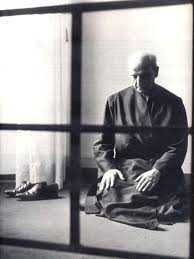
Commentators claim that this move by Recep Tayyip Erdoğan is motivated by political ambition as he tries to raise Islam’s profile in Turkey to counteract secularism and make Turkey a leader nation in the Islamic world. It will, no doubt, please those in his country who have Islamist and right wing tendencies and have been working for this for a long time. They will understand the political implications of the move. But other Muslims might just be glad to be able to pray in such a historical and precious building. I could imagine it would be a very moving experience as it would be for Christians to have the Eucharist celebrated there.
But for Christians this conversion is a backward step which ignores Istanbul’s multi-faith heritage and Hagia Sophia as a symbol of Christian and Muslim unity. The World Council of Churches has expressed grief and dismay at the change, Pope Francis pain and distress and the Ecumenical Patriarch of Istanbul has warned that what was once a building for the whole of humanity and a symbol of the unity of east and west will sow discord between Christians and Muslims. As the US Catholic Bishops have said “For many years now, this beautiful and cherished site has served as a museum where people of all faiths can come to experience the sublime presence of God. It has also stood as a sign of goodwill and peaceful coexistence between Christians and Muslims and an expression of humanity’s longings for unity and love”.
What will happen now to this beautiful Church/Mosque with its magnificent and priceless mosaics and frescoes when used by a faith that prohibits representational imagery and particularly prayer in the presence of such images? Turkish authorities have promised to maintain these priceless artworks which have been plastered over in the past and only restored since the building became a museum. Will they honour that commitment? This I think is the fear of many.
Images are often a point of contention within religions. Some religions like Islam and Judaism see images as idolatrous while Hinduism rejoices in them. Similarly some Christian denominations such as the Orthodox and Catholic tradition are resplendent with images and their use of bells and incense gives a sense of the transcendent. The reformed tradition such as Presbyterianism on the other hand abhors the smells and bells and sees images as bordering on the idolatrous. To a Catholic this tradition seems rather austere and a bit dull. Zen Buddhism is also rather austere and colourless compared to Tibetan Buddhism that is very colourful with it flags, thankas, images and noisy prayer services. One of the many challenges in interfaith relations is to try to understand traditions that are quite different from one’s own, not to judge them and to even feel at ease in them even if not completely at home in them. But that’s not always an easy journey and the beginning of interfaith involvement can mean quite a bit of discomfort as we’re challenged by the unfamiliar. Learning to respect differences that challenge our normal and often unconscious way of doing this is one of the gifts of interfaith encounter.
Whether of course people who are politically motivated care about this is another matter. I do hope that some way of hiding the mosaics during prayer times can be found so that Muslims can happily pray there without the building being defaced. I also hope that this move will not result in estrangement between Christians and Muslims or have negative effects in other parts of the world. The Higher Committee for Human Fraternity set up by Pope Francis and the Grand Imam of Al-Azhar as a result of the joint statement on Human Fraternity for World Peace and Living Together has responded to the changed status of Hagia Sophia by calling on “everyone to avoid any step that could undermine interfaith dialogue and cross- cultural communication and that could create tensions and hatred among the followers of different religions, confirming humanity’s need to prioritise the values of coexistence”. May Hagia Sophia continue to be a sign of this coexistence and in this way rise above the politics and politicians that are using it for their own ends.



 RSS Feed
RSS Feed
